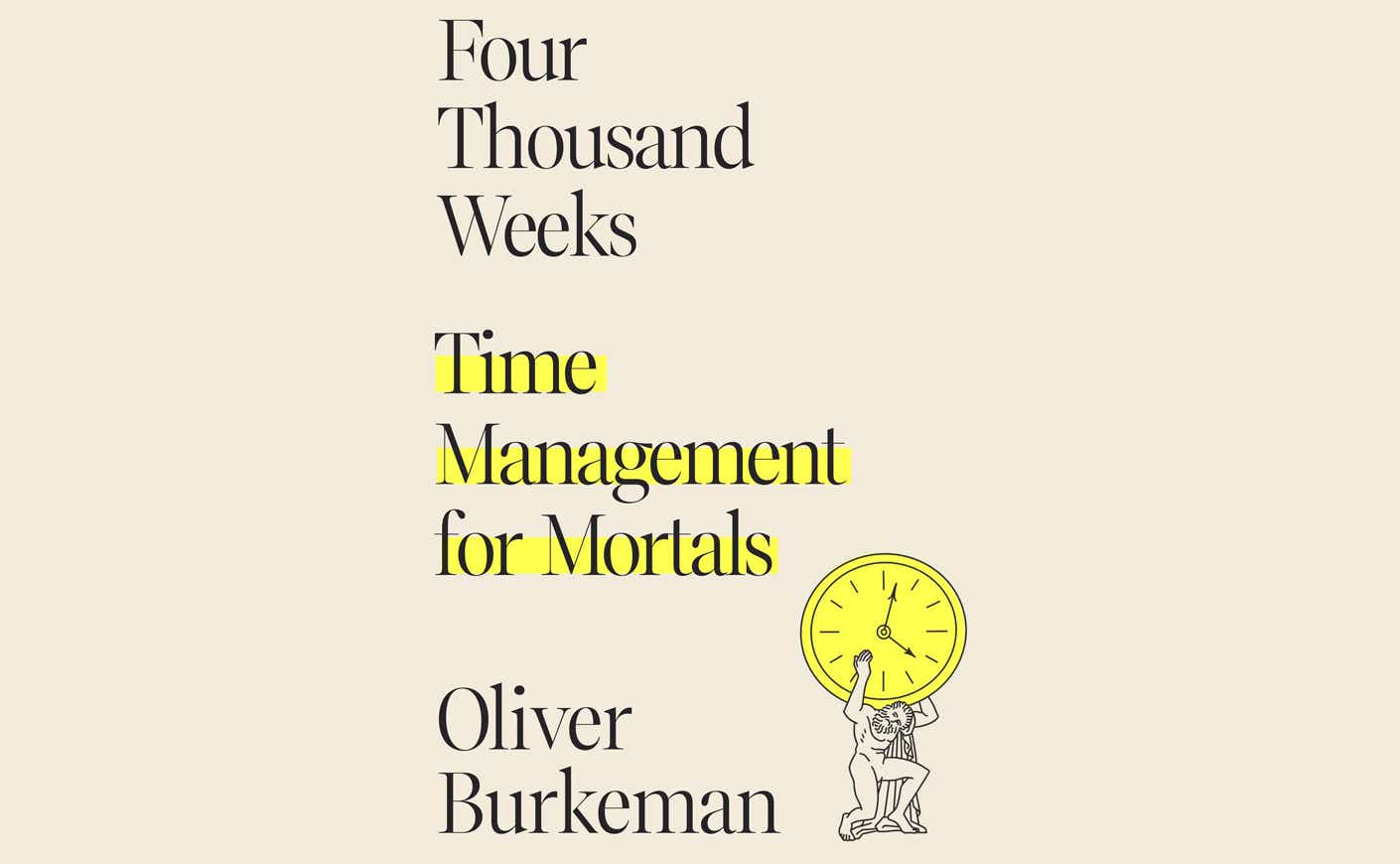Unlike some productivity guides, which focus on how to squeeze every drop from your mornings or how to more efficiently juggle Zoom meetings, Oliver Burkeman’s new book, Four Thousand Weeks, has a different take. Burkeman wants us to take a step back and think bigger — all the way to the fundamental fact of our short time on this earth.
His book takes its title from the stark reality that most of us have just 4,000 weeks to live — about 76 years, which is around the average life expectancy in the U.S. — an “absurdly, terrifying, insultingly short” amount of time, he writes. And yet, time management manuals largely ignore this fact. Burkeman argues that we'll always have something left on our to-do lists, but that the key to happiness is accepting that and focusing on accomplishing the things most important to us.
Burkeman spoke to us about time pressure (and why it’s ramping up in the digital age), why the Inbox Zero concept is a trap, and how we can rewire ourselves to think about our own productivity differently.
Katie Couric Media: How did you start thinking about this concept for reframing time management as an issue of accepting our mortality?
Burkeman: This book arises from my own sort of struggle with all sorts of time management techniques. It really came out of having to admit defeat: that I was never going to find the technique or method that was going to make me able to stay on top of everything that I felt like I had to do.
That’s really one of the key messages I’m really trying to get across here. We live in a world of infinite inputs, whether it’s the number of emails you could get or the number of demands your boss could make of you. It’s just not feasible to be pursuing this state of being on top of it all. We are finite creatures, and to have a meaningful life, we shouldn’t be chasing this illusory state of being in control and "on top of" everything.
You write that so many of us are very bad at managing what little time we have. Why is that?
One of the things people find is that their efforts to make better use of their time don’t bring the peace of mind that we hope that they will. For example, if you get really efficient at answering your email — I can tell you from personal experience — you just end up getting way more email, because you’re replying more and everyone’s replying back to you. So you’re generating more things to do as a result of being so efficient. Or, if you’re the person in the office with the reputation for being able to get through your work with amazing speed, what do you think’s going to happen? Your boss is going to push more work your way. So this is what I mean by the efficiency trap. If all you’re trying to do is get more efficient at your work, it won’t give you a sense of calm and peace of mind.

You write about time pressure in your book and how it’s intensified in the modern era. Can you explain why that is?
It’s really interesting to me, because a lot of evidence suggests that time pressure feels worse now, but that we’re not actually busier than we were a few decades ago. I think that really speaks to what’s going on, because there's this sense that in this accelerating technological culture and in an extremely cutthroat economy, we have to make the best use of time. So even if we're in a position where we might have a bit more leisure than someone did in the 70s, for example, pressure to make use of your time has been upped. So even in their leisure time, I think people feel they need to be spending it productively — like training for a 10k, or improving their skills. Even just getting enough sleep and engaging in self-care can be part of a hidden agenda to optimize yourself to get more work done. It creates this kind of "are you using every minute as well as possible?" pressure to the day that I think is pretty exhausting for most people.
So what would be the first step to rewiring ourselves and breaking out of this “efficiency trap?”
The important point is a shift of perspective and turning toward the real situation, which involves seeing that you’re a finite person, with limited time and limited control of that time. You don’t know how much time you have left and you don’t know how the next week or month is going to unfold. And when you turn toward these truths, it’s definitely uncomfortable.
But I think it’s a discomfort we can tolerate. It’s a sort of discomfort where you say, "OK I have all these ambitions for the next six months." The question is not, "Can I get them all done?" because the answer to that is no. The question is, Am I going to pick one and actually see that through to completion and then turning to another task, instead of seeming like I’m doing them all but really making progress on none of them? I think this shift back down to reality is a crucial thing, and if you can just hang out with that discomfort a bit, it’s like a superpower.
In one section of your book, you talk about why we should “stop clearing the decks.” Can you explain what you mean by that?
It’s the feeling that before you can get down to the thing that’s really important today, or this week, or this month, you have to tie up all those "loose ends." You have to make sure you’re on top of your email, or whatever other task is nagging at your attention. I've definitely been susceptible to this way of thinking for many, many years — but it doesn’t work.
That doesn’t mean you can ignore your email, but for example, it’s a good idea — if you have this level of control over your workday — to fit the most important stuff into a few hours at the beginning and push the deck-clearing items to later on in the day. And to not expect to get to the end of your inbox.
Are there other small lifestyle changes we can make to put these concepts into action?
An obvious one is to pick one major goal in a specific domain of your life — like work or health. And to recognize that you have all these really important things that you want to be doing, and tolerate the discomfort of not even trying to make progress on five of them, while you focus on seeing this one thing through to completion before moving on to the next one.
That makes people anxious, because a good salve for anxiety is to feel like you’re making progress on everything. But unfortunately, while it might be emotionally comforting, it's not the best way to reach meaningful accomplishments, because you end up dissipating your attention.












